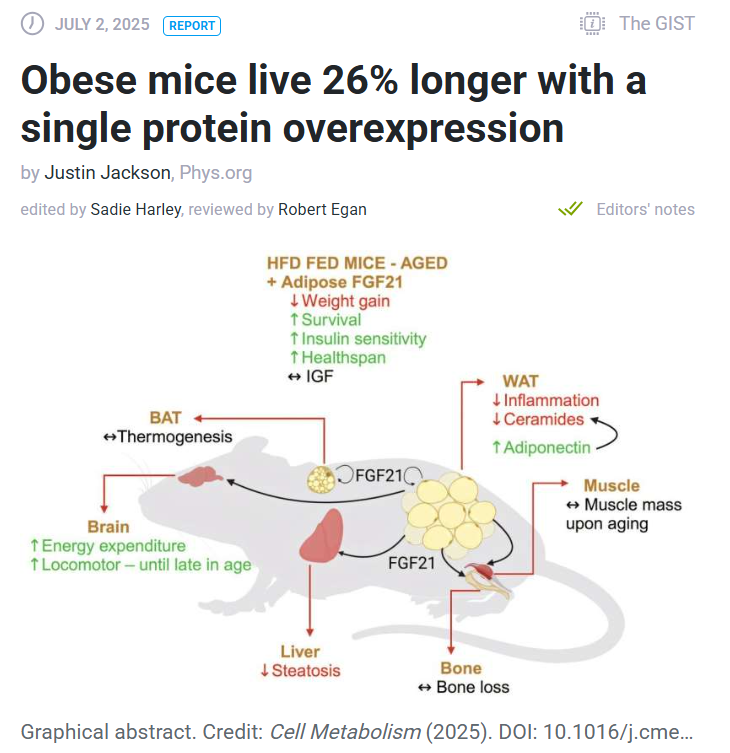E. Shyam P. Reddy, Professor and Director of the Cancer Biology Program at Morehouse School of Medicine, shared a post on LinkedIn:
“Obese mice live 26% longer with a single protein overexpression
University of Texas Southwestern Medical Center scientists found that activating fibroblast growth factor 21 (FGF21) exclusively in the fat tissue of adult male mice prolonged lifespan under sustained high-fat diet feeding, achieving extended life-spans without previously associated reductions in growth or bone density.
Obesity affects roughly 35% of Americans older than 65, and aging plus excess weight together heighten the risk for insulin resistance, fatty liver, and other chronic disorders. FGF21, a hormone mainly produced by the liver, has attracted interest because it modulates metabolism across multiple tissues in mammals. Earlier investigations found that FGF21 improved insulin sensitivity, lowered lipid accumulation in the liver, and engaged pathways tied to longevity.
Previous mouse models triggered continuous expression of the FGF21 protein from birth and resulted in developmental abnormalities, including dwarfism, leaving open concerns about its clinical benefits.
In the study, ‘FGF21 promotes longevity in diet-induced obesity through metabolic benefits independent of growth suppression,’ published in Cell Metabolism, researchers generated mice with doxycycline-inducible, adipocyte-specific FGF21 overexpression to test whether adult fat-derived FGF21 alone could extend lifespan and improve metabolic health under chronic high-fat diet feeding.”

More posts featuring E. Shyam P. Reddy.


